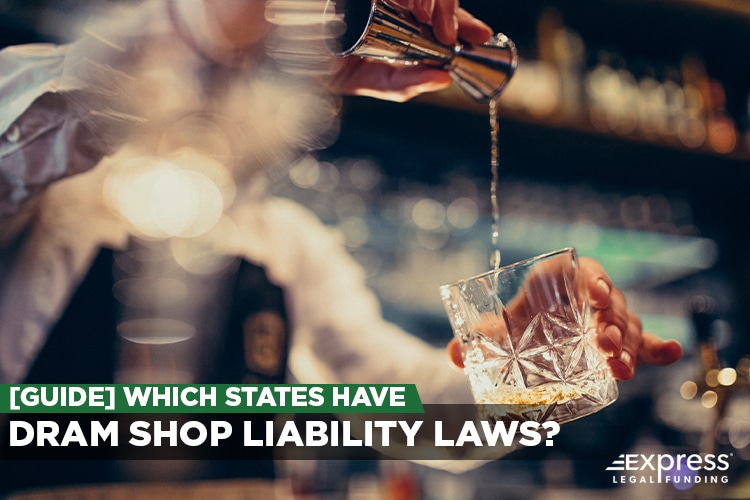
Car accidents are an all-too-common occurrence for an all-too-common reason. Statistics from the United States Department of Transportation show that drunk driving is a leading cause of death in the country and has some of the highest casualty rates to go along with it.
With the number of establishments that offer alcoholic beverages and are overserving, it has never been easier for those who struggle with alcohol abuse to drink in excess.
However, once they are on the road, despite their current inebriation, they become a massive threat to the people around them, including you.
So, what happens when they cause a collision due to their impaired state?
While you can certainly pursue legal action against the driver responsible for the collision who chose to operate a vehicle while intoxicated, however, the question remains of whether or not you can pursue legal action against the establishment that served them in excess.
With this article, we hope to help enlighten you on what steps you can take to sue a bar or restaurant for enabling drunk driving accidents.
Can You File a Claim to Sue a Bar For Overserving?
One difference between suing the driver of the other vehicle and the establishment that served them is that you need only file a personal injury claim for the former. These claims are universal, with few restrictions beyond the proper timeline.
Filing a personal injury case is simple in most respects, but processing a case against the bar is more complex. For starters, your option to file a lawsuit against an establishment that serves alcohol is limited by state.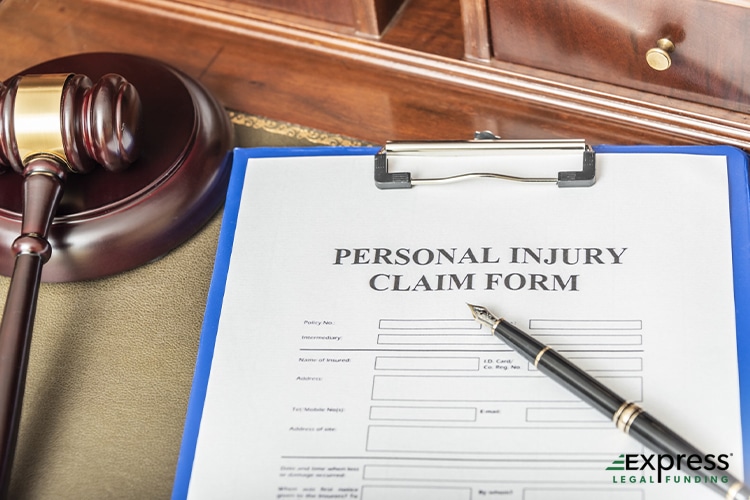
However, in the broadest sense of the definition, you can legally sue a bar or liquor store for overserving a patron who caused the collision that injured you. You need to be aware of specific legal requirements within the border of the state the bar or restaurant that served the alcohol is in before you do.
Depending on what they say, you might have all the parts you need to sue the bar or venue responsible for the other driver’s intoxication by overserving alcohol.
By now, you are probably wondering about the specifics surrounding what factors control your ability to file a successful claim against a bar or restaurant for overserving. Fortunately, you need not wonder for much longer as you can continue to read this article and in-depth summary as we go through how Dram Shop Laws can help you sue a bar for overserving.
Do You Live in a State With Dram Shop Liability Laws?
While few laws alter your ability to file a claim against an intoxicated person who caused an auto accident, the laws that regulate your ability to sue a bar are state-regulated. These are known as dram shop liability laws, which certain states use to control the legal process of suing bars for negligent service of their customers.
Most Dram Shop laws are remarkably similar between the states that enforce them, with a few minute differences across borders.
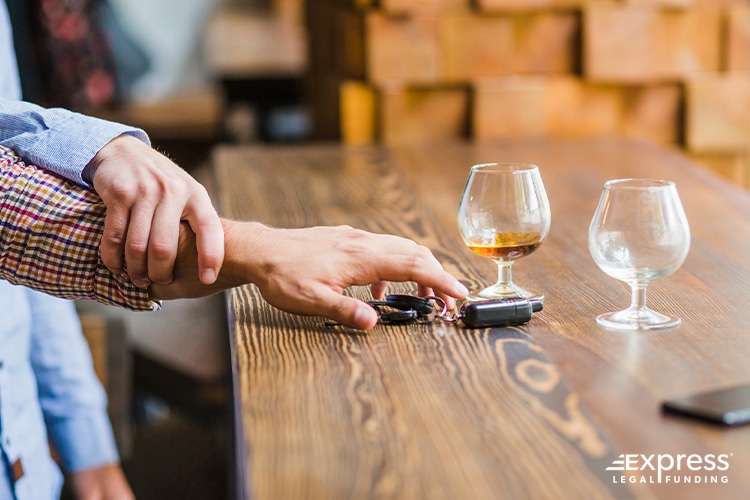
The most apparent commonalities among Dram Shop liability laws involve a bartender serving a patron who overserves “visibly intoxicated” or underage patrons. Depending on each Dram Shop state’s legal drinking age, bartenders who continue to serve patrons who fall under those categories put undue risk on their employer, as the accountability of the drunk driver who caused the DUI accident also rests on the bar and the bar owner.
The crucial part of whether or not these laws can apply to your truck accident case is if the state in which the accident occurred has Dram Shop and social host liability laws. These state laws for civil lawsuits will likely be your best option for suing a bar for overserving and causing the drunk driving accident you were a victim of.
Fortunately, the number of states that have active Dram Shop laws far outnumber those that do not. Delaware, Kansas, Nebraska, Louisiana, and Maryland are the only states that do not enforce this type of liability law.
The remaining states all have Dram Shop statutes in place for personal injury and wrongful death that allow for accountability on the establishment’s part. Unfortunately, just because the power is there does not mean you will automatically be successful in the endeavor.
What Does “Visible Intoxication” Mean in Dram Shop Laws?
Part of pursuing a legal suit against a bar or tavern for overserving involves understanding that the patron they were serving fell within the boundaries of “visible intoxication.”
However, this term can be relatively ambiguous and open to interpretation. So much so that the state generally defines it under the Dram Shop liability laws by the state. For example, Texas statute defines being “visibly intoxicated” as “obviously intoxicated to the extent that he presented a clear danger to himself and others.”
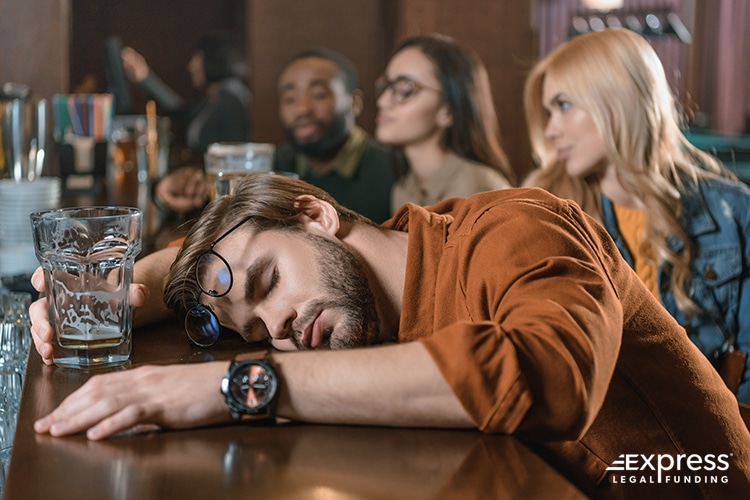
However, this definition might have more nuanced differences by state. Therefore, it is a critical factor in pursuing a claim against the bar. There are always limitations. If the intoxicated driver did not fall under the category of being “visibly intoxicated” by state law, you would have a more challenging time proving the establishment’s fault. Also, some states, like Missouri, have statutes that specify what exactly the alcohol, “intoxicating liquor,” to which these laws apply.
In Missouri, “intoxicating” liquor is any alcoholic beverage with more than 0.5% alcohol per volume.
So, any alcoholic beverage less than 0.5% alcohol is not subject to the Chapter 311 Liquor Control Laws of the Missouri Revised Statutes. Still, you should never assume this to be the case, so you will want to speak to a car accident or Dram Shop lawyer who can evaluate the details of your drunk driving overserving claim against the bar.
The good news is witness accounts of the events from fellow bar patrons, and the bartenders can help establish whether the patron was visibly intoxicated so that the staff could make the determination themselves.
That said, once it is proven that the patron was visibly intoxicated, you can identify any further service rendered by the bar as irresponsible and negligent. This process can seriously strengthen your claim against the bar and reinforce your claim. That said, while a bartender can attempt to confiscate a drunk patron’s keys, they cannot legally force the issue.
If a patron refuses, the bartender must contact the authorities. If the bar can prove that it made all reasonable efforts to prevent the situation, your case against the bar diminishes.
You Need to Prove Fault to Sue a Bar For a Drunk Driving Accident
If you can pursue a legal suit against a bar owner or tavern for overserving alcohol to an intoxicated driver, you will need some proof to support the claim. Specifically, each Dram Shop lawsuit filed for sustained injuries requires proof of fault.
Simply put, there needs to be evidence that the establishment had a role in the events that followed so they can be held accountable. This is the argument between your attorney, the insurance companies, and the opposing party’s attorney.
If a Bar or Restaurant Serves Alcohol to a Visibly Intoxicated Patron
Let us say that an intoxicated patron at a local bar goes to the bartender and orders another drink. The bartender should assess the patron’s level of intoxication before serving them. If the bartender serves the patron who is visibly intoxicated, that means the bartender has contributed in some way to any consequences that arise from the patron’s intoxication.
So, suppose the patron proceeds to leave the bar and drive drunk, causing a motor vehicle collision, which results in an injured party. In that case, the injured victim can pursue a legal claim against both the bar and the intoxicated bar customer because the bartender had a hand in causing the DUI, which led to the car accident.
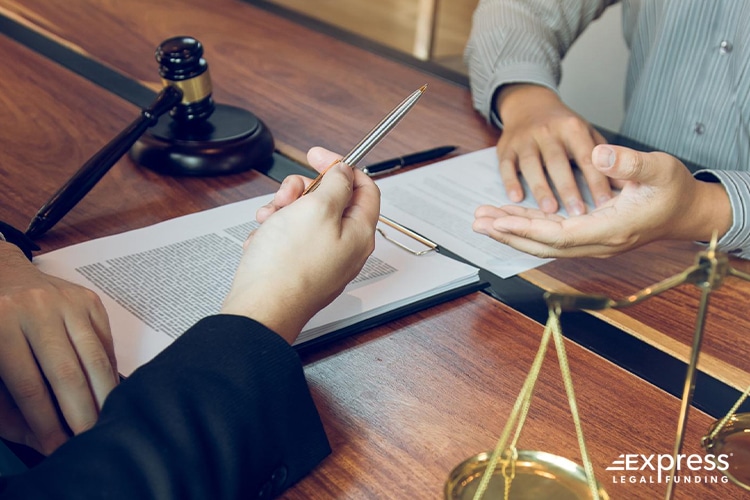
However, the claim will only succeed if you can prove the other driver’s patronage at the bar was directly responsible for the level of intoxication needed to cause the collision. Keep in mind that the level of proof necessary to prove fault generally falls under the concept of the “preponderance of evidence.”
Immediately after the accident, law enforcement agents gathered this evidence to determine the blood alcohol content of the intoxicated individual concerning their bar patronage. Police will also investigate to determine the drunk driver’s starting point.
This process means that when suing for injuries and financial losses due to vehicle damage, lost wages, and medical costs, the plaintiff needs only to prove that the defendant is more likely than not to have been the cause.
When using this concept to sue a bar for overserving a patron, you need to prove that they were more than likely to be the reason the other driver was intoxicated enough to cause the collision. Establishing the bar as the establishment that served the driver, for example, would indicate that they were the ones who let the patron operate a vehicle while under the influence.
What Types of Damages Can You Sue a Bar For Overserving?
You might be wondering what types of compensation you can seek when it comes to lawsuits filed against a restaurant or bar establishment. What might surprise you is that the potential rewards for filing a lawsuit against a bar are relatively similar to what you could financially recover for filing a successful claim against a drunk driver.
When filing a claim against an individual for personal injury, you would typically sue for property damage to your vehicle, physical pain and suffering, lost wages, medical costs, and possibly even emotional damages. This process is standard procedure for virtually every personal injury claim in the country.
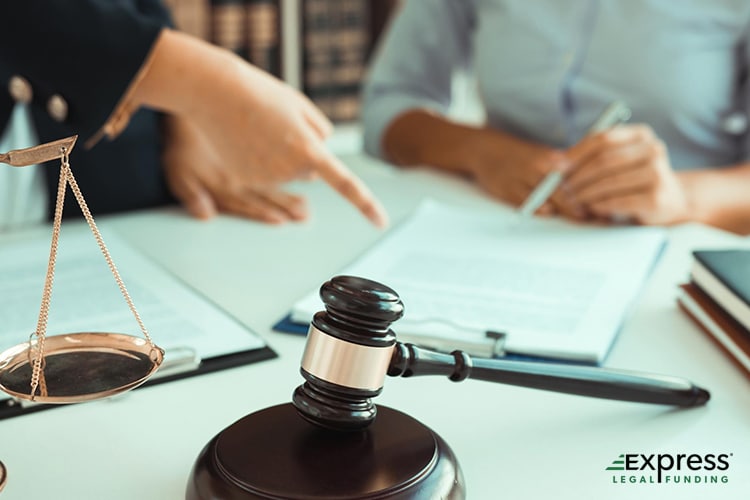
Types of Damages You Can Sue For in a Dram Shop Claim:
So, when you do file a Dram Shop accident claim against a bar for overserving alcohol in a Dram Shop liability state, you and your accident lawyer can sue for the following:
- Physical pain and suffering
- Property damage
- Lost wages
- Cost of your medical care
- Even the emotional trauma endured as a result of the collision.
In this way, there are very few differences between suing a company versus filing a lawsuit against a person. However, this distinction brings another question with it—the question of whether you are limited to only filing a lawsuit against one or the other.
The answer can sometimes vary depending on the state you are in. However, most Dram Shop liability states enable you to sue both the driver and the bar simultaneously. This process allows you to bring both parties to justice for the injuries and damages you suffered due to their respective carelessness.
This lack of restriction also means that you are more likely to recover the funds you are owed to cover your medical costs and, hopefully, much more for the injuries and damages you sustained.
There will still be limitations not specific to the Dram Shop laws when pursuing the case, especially given that most states employ a legally valid time limit for you to take action against the offending driver and institutions.
Types of Dram Shop Cases:
Your case may also change depending on the types of Dram Shop cases that best suit your situation.
For example, if the lawsuit is a first-party Dram Shop case, a third-party Dram Shop case, or even a wrongful death claim, it would be a lawsuit on behalf of a loved one. We recommend speaking with a personal injury lawyer to determine the best course of action.
Be Aware of the Statute of Limitations With Dram Shop Laws
You might think that your state’s only restriction you need to keep an eye out for when considering a claim against a bar is the Dram Shop liability laws for the venue of the case. Well, to a degree, that is mostly the case because, without Dram Shop and Social Host Laws, you have no ability to sue for overserving.
However, additional factors that are technically part of the legal concept need to be considered. We are referring to the statute of limitations on motor vehicle collisions.
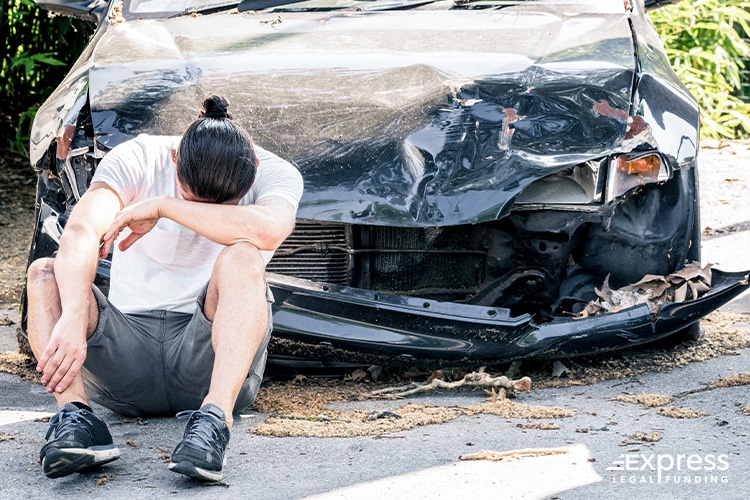
Each state will have personal injury laws on how long you can wait before the time expires to file a claim against both the driver and the bar. This is called a statute of limitations.
Some states allow you a grace period of up to five years from the date of the accident before the statute expires, whereas others will only afford you one or two years.
Regardless of the exact timeframe, you have lost all legal rights to file a claim in general once the time to file the lawsuit elapses, even if the other party was 100% liable for your loss.
It is crucial to be aware of the statute of limitations for your state for filing personal injury claims when you have a claim against an alcohol-serving business. You can do that by hiring an accident attorney or accident law firm if you have not done so already.
Just because you were unaware of the statute of limitations expiring does not mean the judicial system will ever make an exception. Although, your personal injury attorney may be able to find an alternative route allowing you to file a claim.
In addition, if the statute expires, you are on the hook for all your expenses the responsible parties would have paid off via the settlement or a trial award.
Closing Statements on Suing a Bar For Overserving Alcohol
Filing a Dram Shop liability claim against a bar establishment might seem like a pipe dream to some, but the reality is that it is a highly viable course of action. Just because a business is a larger entity than an individual driver does not mean they are immune to consequences for negligence.
While some states might protect alcohol vendors from legal repercussions, the vast majority of states afford you the freedom to seek justice against bars, taverns, or other alcohol vendors whose overservice leads to injury to your person.
If you live in a state that allows access to this kind of legal action against a bar, you will be surprised by how similar it is to a claim against an individual.
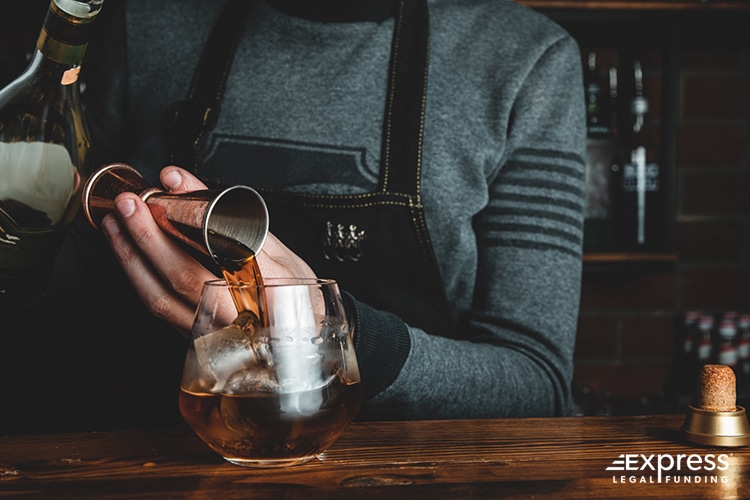
Even though seeking injuries and damages from both a drunk driver and the bar establishment that enabled their intoxication can lead to a large settlement, there is a time period where there are only expenses for you. During a Dram Shop case, you are actively seeking costly medical treatment, repairing or replacing a car or truck, and managing your daily cost of living all at once.
That much expenditure while injured can make anyone’s head spin, no matter their financial situation. It can easily lead to you getting behind on monthly payments and living costs with seemingly no way to pay them.
Fortunately, we at Express Legal Funding, a Plano, Texas-based lawsuit funding company, can offer a solution. That solution is pre-settlement funding advanced against your Dram Shop claim. The legal funding process consists of funds advanced that you can use to pay for essentials such as rent, food, medical bills, and car replacement. When you win or settle your Dram Shop lawsuit, those funds are repaid with a portion of your settlement or trial proceeds from your claim.
Of course, one of the best parts is that we only expect repayment if you settle or win your case, so there is no risk or more debt worry for you to think about.
So, if you have found yourself in a lengthy legal battle with bills piling up, call us for the help you need today. Contact us today for the honest and free consultation you deserve to learn more about how you can get pre-settlement funding cash on your claim.
